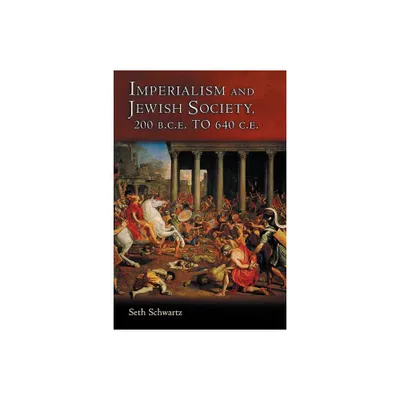Home
Left Imperialism: From Cardinal Richelieu to Klaus Schwab
Loading Inventory...
Barnes and Noble
Left Imperialism: From Cardinal Richelieu to Klaus Schwab
Current price: $24.95


Barnes and Noble
Left Imperialism: From Cardinal Richelieu to Klaus Schwab
Current price: $24.95
Loading Inventory...
Size: OS
*Product Information may vary - to confirm product availability, pricing, and additional information please contact Barnes and Noble
Left Imperialism
is an exercise in a novel field: ideology archaeology.
Is the United States Constitution conservative or liberal? Where does the conservative-liberal dichotomy originate? Are American conservatives related to British conservatives or not? Who are the anarchists—left-wingers or right-wingers?
offers the answers to these questions and many more, taking on a spectrum of ideologies from a brand-new evolutionary perspective. For example, the book traces the origin of many standard political terms—like "left-wing" and "right-wing"—from their inception to the present through all their perturbations. It also examines in distinctive detail political movements like Conservatism, Fascism, Liberalism, Marxism, Anarchism, and many more, from as far away as Cardinal Richelieu's epoch through World War II and into the present.
The book's narrative has one overriding theme: the evolution of freedom.
presents a novel concept in political philosophy called the "individual-state paradigm," which generalizes and extrapolates the Right-Left distinction.
is an exercise in a novel field: ideology archaeology.
Is the United States Constitution conservative or liberal? Where does the conservative-liberal dichotomy originate? Are American conservatives related to British conservatives or not? Who are the anarchists—left-wingers or right-wingers?
offers the answers to these questions and many more, taking on a spectrum of ideologies from a brand-new evolutionary perspective. For example, the book traces the origin of many standard political terms—like "left-wing" and "right-wing"—from their inception to the present through all their perturbations. It also examines in distinctive detail political movements like Conservatism, Fascism, Liberalism, Marxism, Anarchism, and many more, from as far away as Cardinal Richelieu's epoch through World War II and into the present.
The book's narrative has one overriding theme: the evolution of freedom.
presents a novel concept in political philosophy called the "individual-state paradigm," which generalizes and extrapolates the Right-Left distinction.


















